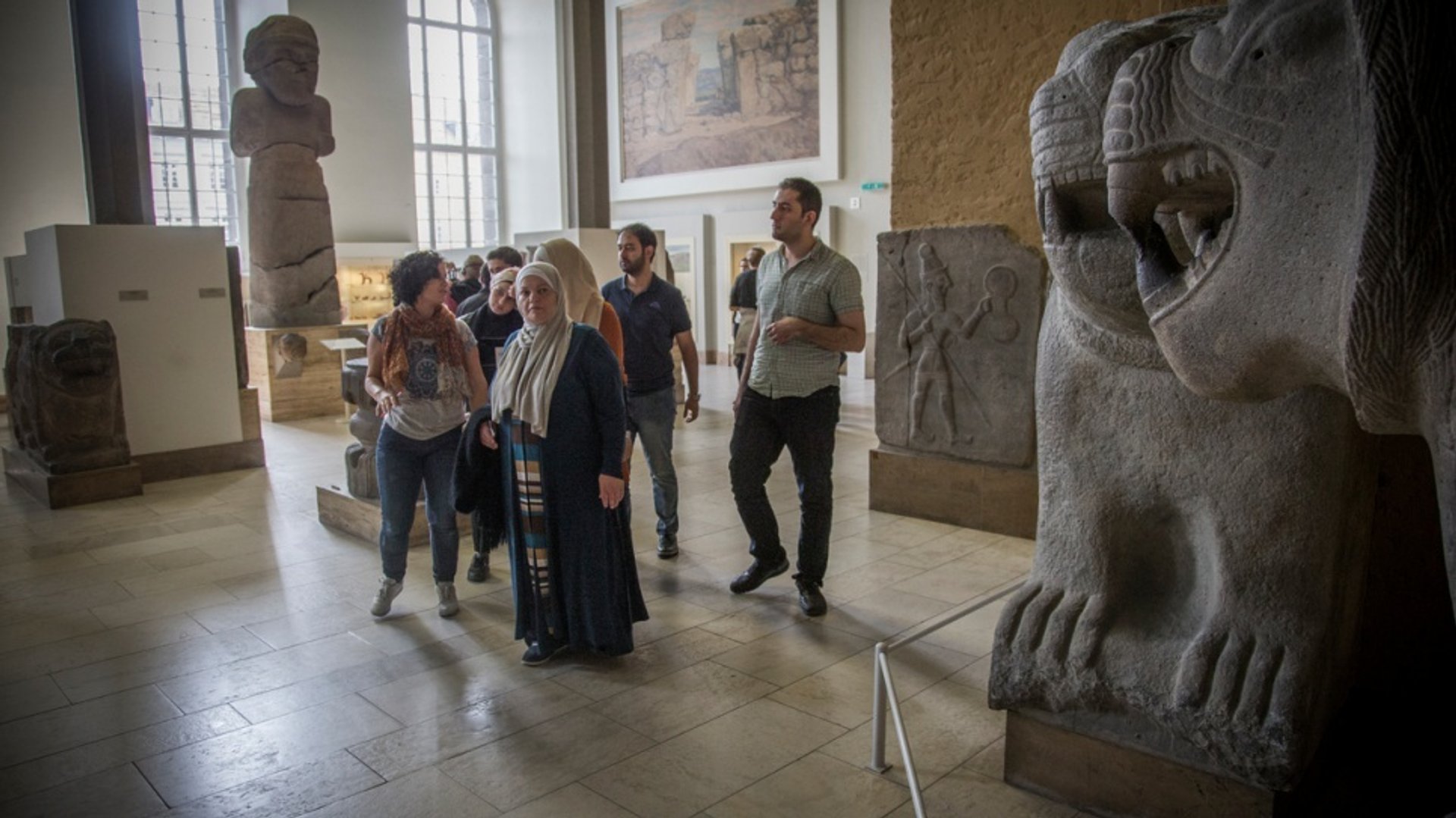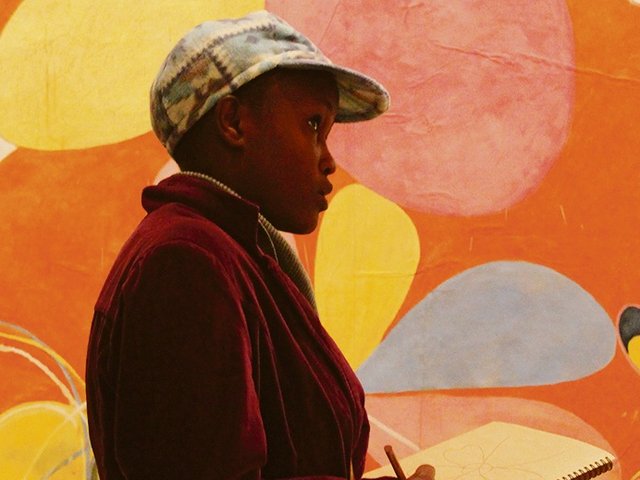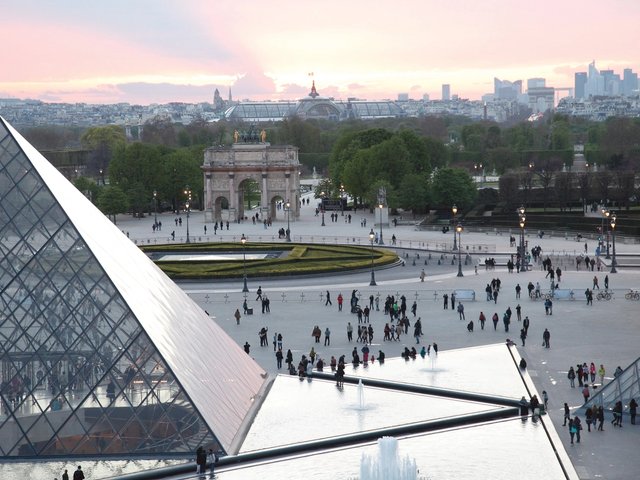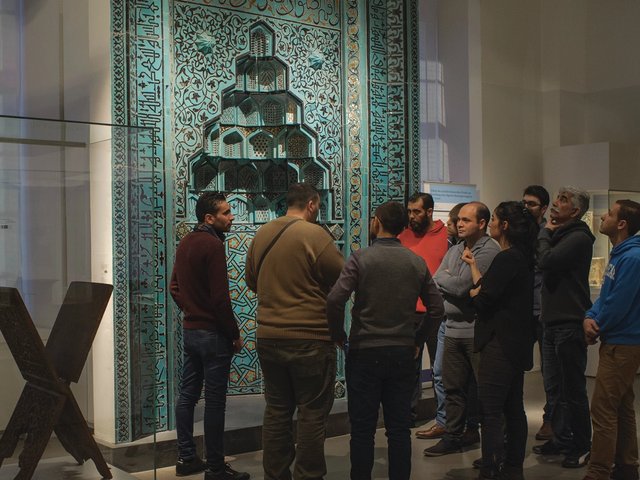Museums in Berlin are helping to welcome refugees to the city and its culture with the programme Multaka—from the Arabic word for forum or meeting place—in which trained refugees from Syria and Iraq give free guided museum tours in Arabic to other displaced groups. The programme, started by the Staatliche Museen zu Berlin (Berlin State Museums), offers visits twice a week in four museums: the Museum of Islamic Art and the Museum of the Ancient Near East, two separate museums housed together in the Pergamon Museum; the Byzantine Art Museum in the Bode Museum; and the German Historical Museum (which is not part of the State Museums).
The idea for the programme first came about in autumn 2015 and the Federal Ministry for Family Affairs quickly allocated funding. Work on the project began in November 2015, and the first visits took place five weeks later. To date, more than 4,000 visitors have participated in the programme.
At the launch of the programme, 19 guides from Iraq and Syria were recruited by word of mouth among the migrant community in Berlin, and were given a four-day training session. There are now a total of 25 guides, who come from a variety of professional backgrounds, some related to the arts and heritage, others to disciplines like law and economics. One of the original 19 Multaka guides, Bachar al-Chahin, who started working only two months after arriving in Berlin in September 2015, was a tourism guide in Syria and now gives tours at the Museum of the Ancient Near East.

Stefan Weber, the director of the Museum of Islamic Art and one of the Multaka’s initiators, says that the guides often choose artefacts that have special meaning for them. “With the help of objects from our past, questions from our present are debated. Museums become spaces of reflection on collective identities,” he told our sister paper Le Journal des Arts. “Several thousand displaced people have visited the museums, to actively discuss their history and German history, which is important.” At the Pergamon Museum, Iraqis and Syrians have a direct relation with the objects on show, while at the German Historical Museum, the visits mostly involve the post-war period.
According to statistics on visitors compiled by Bachar al-Chahin, the majority of visitors are young and well-educated, but for a small amount of visitors, these guided tours are their first trips to a museum.
The Multaka project has already received two prizes, one specifically created by the Federal Ministry of Culture to recognise cultural initiatives that help refugees. The ministry also dedicated €85,000 to the project last April in order to launch a second phase of the project, in which inter-cultural studios open to refugees and the local population will soon be put in place, in order to promote exchange and integration.
Bachar al-Chahin says the experience gives hope to migrants. It has opened doors for him: he has been invited by the German artist Wolfgang Tillmans to show his photographs in a project space. “The museum is my home,” he concludes.




